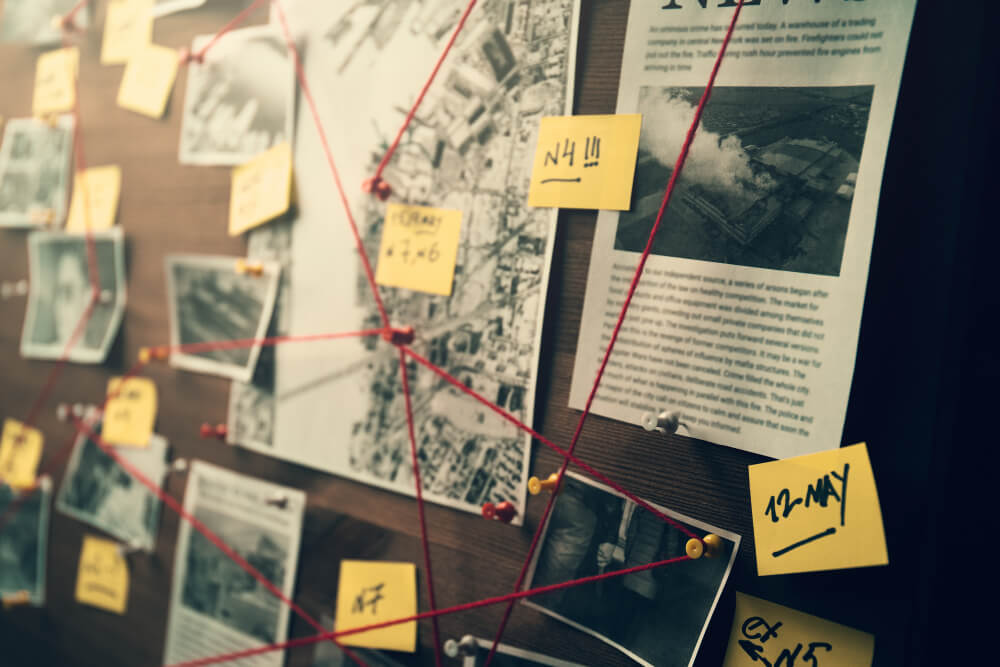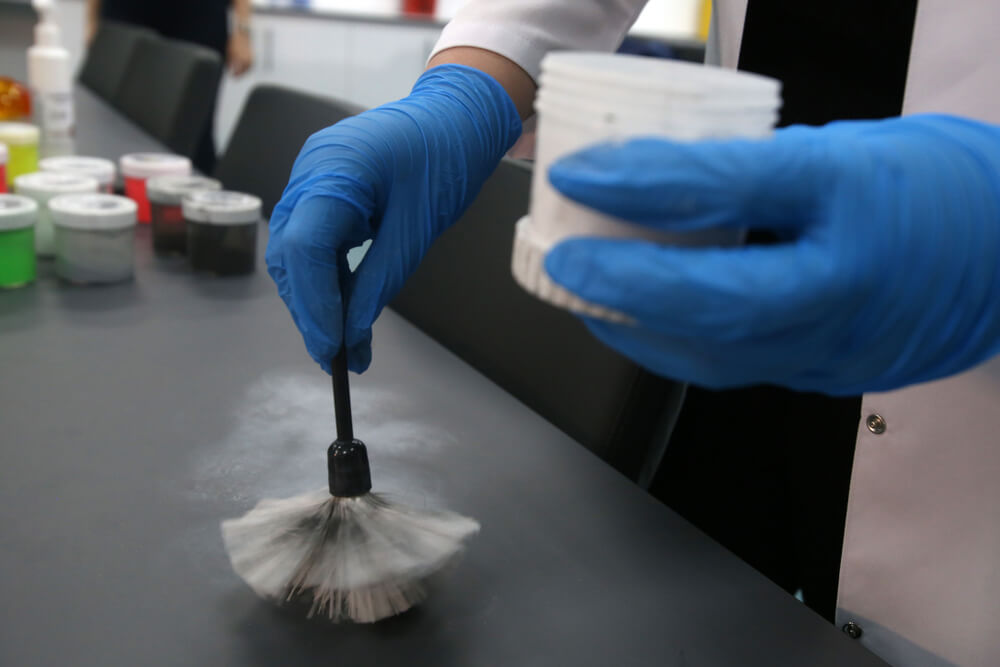
Criminal intelligence analyst is relatively a new career in the field of criminal justice and criminology. However, this profession has become one of the most critical fields in preventing crime and supporting law enforcement. The job of criminal intelligence involves identifying and deriving trends from the patterns of previous offences.
Criminal intelligence analysts are indispensable. They provide vital information to the police to curb down the growing crime trends. Moreover, criminal intelligence analysts help law enforcement make better decisions. Police forces efficiently prevent crime by utilising resources and workforce wisely.
Table of Contents
What does a Criminal Intelligence Analyst do?
Criminal intelligence analysts analyse and identify the pattern of criminal behaviours. They conduct research relevant to criminal investigations. As a criminal intelligence analyst, your responsibility will be to collect the data and analyse it. Moreover, you will have to monitor the databases of police and law enforcement. And you have to report your findings to the proper administration after you reach a conclusion.

Through your strategic analysis, law enforcement agencies can figure out the placement of personnel to deter crimes. You will be using administrative data with a tactical approach to achieve a different set of goals. Consequently, a tactical analysis is focused on using resources to deter urgent crimes. The immediate dangerous crimes include murder, abductions, or rape.
Criminal intelligence analysts provide information in the form of graphic or visual content. It includes tables, charts, and maps. Supervisors and heads of crime departments receive this information from the criminal intelligence branch.
The job of a criminal intelligence analyst is highly driven by research. You might use both local or national sources to pull data while dealing with a particular crime. As a criminal intelligence analyst, you may have to respond and explain any particular situation if necessary.
Responsibilities of a Criminal Intelligence Analyst
Criminal intelligence analysts are the lynchpin that holds law and justice together. They help police departments maintain law and order with accurate data and information. Criminal intelligence analysts have a wide array of responsibilities. A list of responsibility include –
- Assess and interpret intelligence data using various analytical techniques
- Understand the intelligence data requirement of your clients
- Provide desk level briefings and formal presentations for your final report to law enforcement. Moreover, you might have clients in the government. It includes the home office, ministry of defence, national crime agency, among others.
- Be an expert in specific areas of the job.
- You might have to update the intelligence record on the database
- Identify potential agents and targets and build up an intelligence picture. You can complete this task using a range of sources. Sources include signals intelligence and human intelligence.
- Collect and validate intelligence data. Consequently, you have to evaluate the reliability and credibility of your source.
- Monitor modes of communication and technology to detect any form of security or data breach
- To identify risky communication and threats, you have to create filtering programs.
- To recommend points on improving security and safety, maintain and distribute reports.
- Analyse gathered data to solve a crime or problem.
- To gather in-depth information, you might have to liaise and collaborate with experts from different fields. For instance, you might need the help of a linguist if the information is in a different language.
- You might have to maintain a non-disclosure rule about some aspect of your work.
- Be an expert witness and present your findings in court if necessary.
How to Become a Criminal Intelligence Analyst?
Before picking criminal intelligence analyst as your career, you need to find out about the education and licence requirements. Moreover, you need to have a clear idea of the employment opportunities and the work environment. Make sure you connect with industry professionals and veterans who can guide you towards your objective.

Finding a mentor will help you prospect in the future, no matter which career path you go down. You can volunteer or freelance for projects in your interested specialisation. Consequently, it will give you a more clear picture of what you are getting into and you can increase your network.
In addition, attend events or career fairs specifically for criminal intelligence analysts. Prepare a brief introductory speech and make business cards to hand out at the event. Try to ensure the speech highlights your career achievement and your deduction to secure a position in the industry. Moreover, taking these steps will guarantee your first impression in the criminal intelligence community remains strong.
Consequently, take the help of a professional career counsellor if you are uncertain. Explain your career goals and interests. And the counsellor can tell you which profession you are strongly fitted for.
Educational Qualification of a Criminal Intelligence Analyst
To be a criminal intelligence analyst in the UK, you must have an accredited bachelor’s degree. If you are sure about going down this career path, consider majoring in a discipline related to this. Relevant majors include subjects such as sociology, criminology, public administration, psychology, criminal justice, etc.
Also, any previous experience in a law enforcement agency could lead to the relaxation of educational requirements.
However, getting a degree would be a wise choice. Choosing a suitable bachelors degree is a significant decision to become a criminal intelligence analyst. Most criminal intelligence analysts also earn a master’s degree.
However, a diploma or associate’s degree can somewhat satisfy the educational requirement. But you need to present enough experience with that. In some cases, other relevant job experience can better help you become an analyst.
Consequently, a master’s degree can help you earn a better salary. In some cases, you might be getting promotions to higher positions for an additional master’s degree. And a master’s degree takes about 1 to 2 years.
Moreover, you have to pass through an extensive background check. Oftentimes, a criminal intelligence analyst has to sit for a polygraph test before getting onboard. Moreover, being fluent in more than one language can give you a significant advantage. Consequently, empathy, communication skills and good judgement are important skills in this profession.

Certifications and Accreditations for a Criminal Intelligence Analyst
Some organisations may require you to get additional certifications. It will be required mostly when you do not have a relevant bachelor or master’s degree. Consequently, some hiring avengers prefer candidates having accredited certifications. It demonstrates your dedication to professional development.
Training in Criminal Intelligence Analysis Level 1, 2 and 3 will help you become a trained analyst. It will provide you with details of the process of crime mapping and tactical analysis, how the justice system works, how to tackle any terror-related crimes and more.
Working Hours & Salary of a Criminal Intelligence Analyst
To identify patterns of criminal behaviours, criminal intelligence analysts use copious amounts of data. They assist detectives, professionals, and officers with intelligence resources. You can work for several organisations. It includes research firms, federal government agencies, local police departments etc.

The average starting salary of a criminal intelligence analyst is £20,000. With more experience, your salary range can go as high as £52,000. Consequently, your typical work hours will be 37 to 40 hours each week. The work hours may be subject to change depending on the project you are working on. In some instances, you might have to travel to attend court hearings or business meetings.
The job of a criminal intelligence analyst is challenging and rewarding at the same time. Your role as an analyst might be office-based. However, there is scope for collaboration with the field investigation team. You have to take the initiative to analyse and question the verbal or numerical data continuously. In addition, your decision-making should be guided by data-driven facts.
The workplace of a criminal intelligence analyst is governed by regulations and legislation. Moreover, you have to abide by a specialist code of practice. Analysis and thinking are at the heart of this profession. Consequently, the career path comes with a lot of development opportunities.
There are several job opportunities for criminal intelligence analysts throughout the country. Also, you can work overseas with enough educational qualifications. You can find vacancy information on the websites of organisations. Moreover, employers often advertise and organise recruitment campaigns. So, you have to make certain to keep an eye out for that!
Career Progression of a Criminal Intelligence Analyst
Advancing from your entry-level job to the supervisory role is basically what career progression means. It is a practical map showing how you might advance from one role to another in the same field. Knowing about the career path for a specific job might help you make a more informed decision.
So, where do you end up in 5 to 10 years as a criminal intelligence analyst? You will be pleased to find out there are plenty of options. For example, you could become a senior investigator or security director with 8 to 10 years of experience. In addition, becoming an asset protection manager or chief of security could take 6 to 8 years of experience.
A senior analyst manages a specific area of business or an analytical team. Moreover, senior analysts have to deliver plans as per the organisation’s objective. As a senior analyst, you have to work as per national intelligence standards. You can also become an intelligence manager. And you will be responsible for the leadership of an intelligence team.
Consequently, as per the organisation, you may need to undergo training. It will help facilitate the necessary career progression. Taking the intelligence professionalisation programme, you will gain recognition and accreditation. It will further prove your competence across all other IPP organisations. In addition, continuous professional development is a must for keeping your skill sets updated.
The need for criminal intelligence analysts is growing. The reason behind the growth of popularity is because they can provide reliable and detailed information.
6 Skills You Need to Become a Criminal Intelligence Analyst
Criminal intelligence analyst has an aptitude for studying and analysing a wide range of data. If you are interested in becoming a criminal intelligence analyst, you need to possess certain skill sets. Here are six skills you will need to become a criminal intelligence analyst.
1. Information Technology
To become an intelligence analyst, a strong working knowledge of computer systems is imperative. It is because modern intelligence analysis entirely relies on computer systems. You will be much reliant on IT for most parts of your job. So, having some training and certification in information technology could do you much good.
2. Database Management
For intelligence analysts, it is essential to know the proper use and administration of databases. You will be spending much time on your work handling sensitive and vital information.

So, you have to know how to store and update information on the databases. In addition, you have to know the correct operation of databases to find out information.
3. Assessing and Analysing Threats
To determine the likeliest outcome, criminal intelligence analysts have to take in a large amount of information. To assess the information you get, you have to study a range of data. It includes history and geographic information, personal profile. In addition, you need to take a statistical approach to the wide pool of data.
Consequently, you will assist the decision-makers in various high stakes and dangerous situations. Your advice will be vital in making sure law enforcement agencies can make accurate decisions.
4. Cybersecurity
Computer systems and the internet today are filled with cybersecurity threats. So, your job will be to protect the vital database and computer systems from external threats. So, you need to have detailed knowledge of security across all platforms. Moreover, coding skills and computer forensic experience will come in handy.
In essence, you should understand how cyber hacking works and take precautions for that. Identifying all the possible cybersecurity threats in advance will keep you in the loop. Consequently, you will be able to safely share information and complete research. And you will not have to worry about any external breach.
5. Linguistic Skills
Being able to speak more than one language can be an extremely beneficial skill for a criminal intelligence analyst. If you need to analyse a culture different from yours, you need to overcome the language barrier. Consequently, international intelligence sometimes receives accurate and reliable information from translators.
Learning Arabic, Russian or Chinese will be a great decision if you are applying for government jobs. All these languages are the most sought after in the industry. If you are applying for a private criminal intelligence analyst job, language requirements may vary.
6. Open Source Intelligence
The information that you can find freely on the internet is what we call open-source intelligence. OSINT includes publicly released information such as census data. Moreover, information published on social media or any other website can count as open-source intelligence.
Criminal intelligence analysts use OSINT to identify threats or study the external market. In addition, you can use open-source intelligence to find errors in the security network. However, there is a huge pool of open-source intelligence data. So, it will be your responsibility to assess and discern the credibility of the information you are using as a source.
Job Prospects in Criminal Intelligence
Job prospects in criminal intelligence are huge. Other than being a criminal intelligence analyst, there are plenty of options you can choose from. A few of other jobs available in the criminal intelligence field include,
Criminal Profiler
A criminal profiler identifies and apprehends subjects using investigative techniques. In addition, they help law enforcement with their psychology and data analysis skills.

Criminal profilers conduct research and pinpoint behavioural patterns. Moreover, they work as a part of an investigative team and provide training.
Detective
Detectives collect evidence and gather facts for criminal cases. They investigate several crimes through records of interviews and some other means. You can specialise in different criminal behaviour. For instance, you could be a fraud or homicide specialist. Detectives usually work for law enforcement agencies. In addition, some detectives offer private services after retirement.

The average detective salary in the UK is £36,000 per year. So as a private investigator, you could be earning more or less.
Crime Laboratory Analysts
Crime laboratory analysts analyse the weapon of crime. They solve the crime through analysis of DNA, toxicology reports, among others. Moreover, they analyse and solve crimes with the help of other forms of evidence. Evidence includes fingerprints, blood, and hair samples etc.

Laboratory analysts make sense of evidence using high-tech forensic equipment. Crime laboratory analysts sometimes make a serious breakthrough in a case with the smallest detail.
Database Administrator
To organise and store data, database administrators make use of specialised software. Managing data relevant to suspects, crimes, and victims is the primary responsibility of a database administrator. In addition, designing new databases or incorporating information into the old ones are some other responsibilities.
Financial Intelligence Examiner
Financial intelligence examiners scrutinise the finances of big corporations or individual businessmen. They do it with the intent to find potential financial fraud or any other crimes. In addition, they investigate cases of money laundering and embezzlement.

You need to have extensive knowledge of the financial service industry to become a financial examiner. In addition, having advanced mathematical skills is necessary. Collaborating with law enforcement and auditing individuals will be a common part of your job. Also, financial analysts have the freedom to work at private organisations.
Arson Analyst
Analysing fire scenes using data science is what arson analysts do. They determine the cause of the fire after the fire has been put out. The main reason for the investigation is to figure out whether the fire was an accident or arson. Sometimes, faulty appliances or electrical systems are the cause of the accidental fire. Arson analysts’ job is to measure and find out all the probable possibilities.
Forensic Psychologist
Forensic psychologists expand upon the work of criminal profilers. They develop criminal profiles using detailed behavioural analysis.

Forensic psychology has a separate branch at every law enforcement agency.
Important Keywords to Include in a Criminal Intelligence Analysts’s Resume
Organisations review hundreds of applications for a certain position. In most cases, they use software to skim through the resume. And sometimes, candidates get selected on the basis of the keywords they choose to use in the resume. So, here are some common keywords most employers look for in a criminal intelligence analyst’s resume.
Analytical
Researching and interpreting data is what analytical skill is all about. Strong analytical skills are vital to assessing a problem and developing a solution to address it. So, you can see why your resume needs to include this keyword.
Top Security Clearance
Often, some organisations will require you to have security clearance for the position of a criminal intelligence analyst. It also ensures that you can be trusted with sensitive national and international intelligence data. You can get a top security clearance after a thorough background check.
Having top security clearance is vital for working with confidential information.
Military Experience
Not many know this, but having military experience can pretty much have you set up for the job. With military experience, you will be familiar with the chain of command. And you will have knowledge of the law and order issues in different regions. So, having military experience can set you apart from other criminal intelligence analyst candidates.
Problem Solver
Employers will always look for problem-solving ability in a criminal intelligence analyst. Problem-solving ability can help you find unique ways to troubleshoot issues. Moreover, it boosts your time management ability.
So, make sure you insert these primary keywords in your resume. And you have to make sure to connect your professional life with these instances.
Summary
The importance and demand of a criminal intelligence analyst will constantly increase. It is due to the increase in heinous crimes committed and changes in global technology. The increasing number of cybercrimes and other crimes happening worldwide is seriously alarming. A criminal intelligence analyst can evolve with demand and tackle the challenges.
Do you want rules and policies to be effective and data-driven? Then a career as a criminal intelligence analyst is right for you. Get the proper educational foundation for the job and make your communities feel safer.
Recent Posts
- Test BMR
- The Importance Of Editing And Proofreading Your Writing
- Supervisory Skills: A Guide for Aspiring Supervisors
- Criminal intelligence analyst: Career Path & Prospects
- How to Become a Professional Nutritionist: A Beginners Guide
- How to Become A Criminal Intelligence Analyst: Career Guide & Outlook
- What is proofreading? The ultimate guide to become a proofreader
- 20 Proven Ways to Improve Communication Skills in 2021
- How The Time Management Matrix Has Changed Modern Work


0 responses on "Criminal intelligence analyst: Career Path & Prospects"